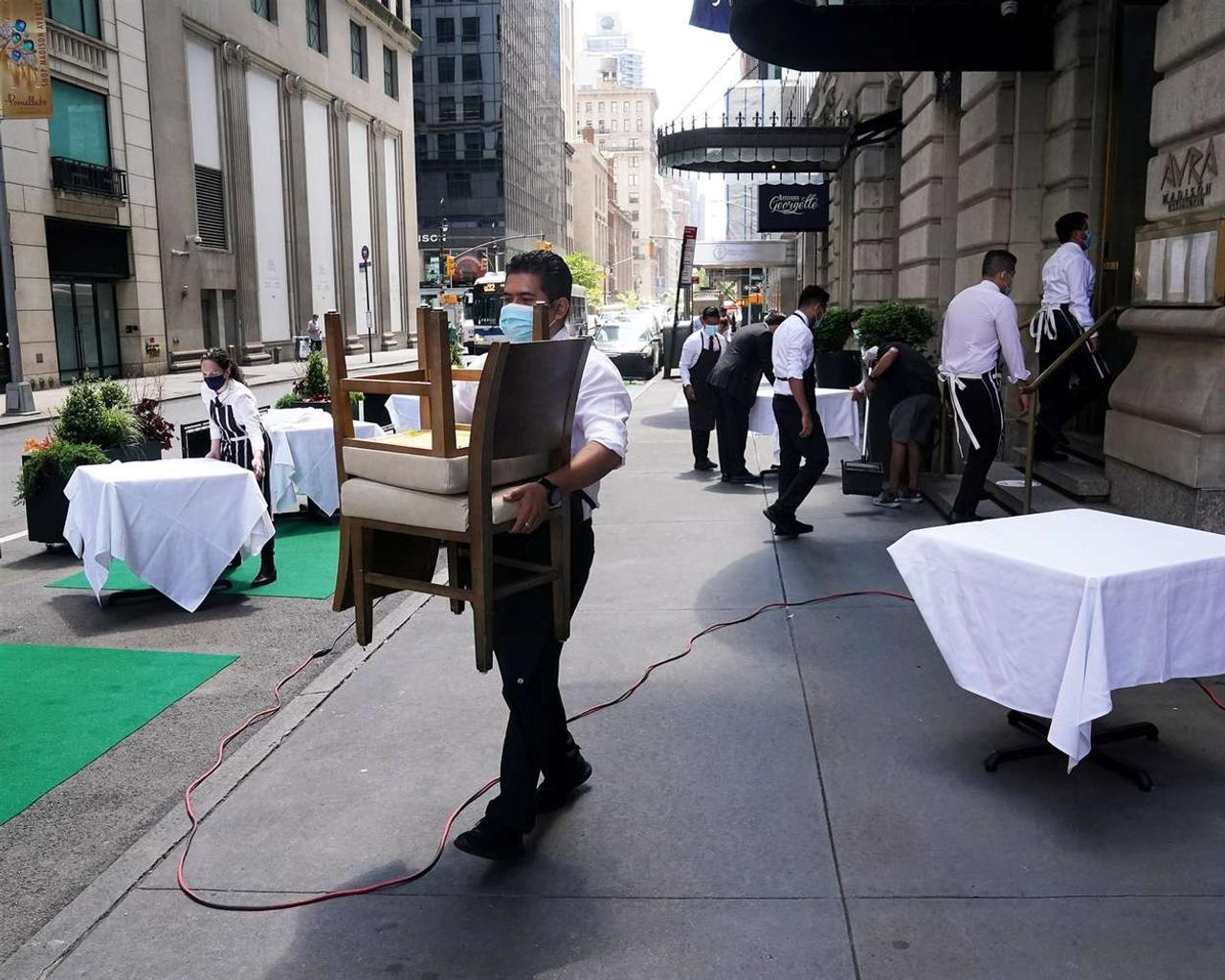Pandemic-ravaged restaurants can tap a new government grant program starting Monday.
The $28.6 billion Restaurant Revitalization Fund, run by the Small Business Administration and authorized as part of the $1.9 trillion coronavirus relief package signed into law by President Joe Biden last month, will provide grants to the restaurant industry hit hard by pandemic.
Restaurant owners have had to struggle with pandemic shutdowns, an economic downturn, supply chain snarls, a slow return of customers and staff, and costs to implement new coronavirus mitigation measures and procedures.
Owners got creative as best they could, installing outdoor seating and heaters, changing up menus, and pivoting to delivery and curbside pickup.
Some had to lay off staff and reduce hours. Others offered gift cards at discounted rates to shore up cash flow. Over 110,000 eating and drinking locations closed down in 2020, both temporarily and permanently, according to the National Restaurant Association, an industry trade group. Overall industry sales fell $240 billion from expectations.
Now as warmer weather, increased vaccination rates, and extra stimulus spending are drawing customers out again, hard-hit restaurants need access to capital to meet the surging demand. Sales in March jumped over 13 percent to $62 billion, the strongest one-month increase in the past 12 months, according to National Restaurant Association figures.
“Restaurants are the core of our neighborhoods and propel economic activity on main streets across the nation. They are among the businesses that have been hardest hit and need support to survive this pandemic,” said SBA Administrator Isabella Guzman in a statement.
Restaurants and chains can apply for funds, up to $10 million per business and up to $5 million per location.
Restaurants were among the businesses that applied for funding in a previous popular SBA program, the Paycheck Protection Program, executed under former President Donald Trump. The hastily assembled program was riddled with controversies from day one over how it was run and who received funding, with well-resourced firms able to get the first loans, and participants complained of confusion from constantly evolving guidance. It disbursed over $750 billion in forgivable loans out of the over $810 billion appropriated.
This time around the SBA took pains to address some of the complaints about PPP and set up several guardrails.
For the first 21 days the program is open, the fund will prioritize women, veterans and historically disadvantaged applicants. After that it will be first come, first served.
“In addition to historically having less operating liquidity and revenue than almost any other small business demographic, Black-owned restaurants received significantly less stimulus funding during the Covid-19 pandemic, heightening challenges and leading to disproportionate closures,” said Ron Busby, Sr., president and CEO of U.S. Black Chambers, in a statement. “The USBC believes this initiative and collaboration with the SBA will bring needed resources and relief to these often underserved businesses to aid in stabilization, recovery and ultimately, strengthen our economy.”
Technological issues, slowdowns, and glitchy applicant portals thrown together by banks were a complaint about PPP. The revitalization fund is letting borrowers apply through an SBA portal, phone line (844-279-8898), and is working with point-of-sale companies such as Square, Toast, Clover, and NCR who already have relationships with restaurant owners, to make applying easier.
The list of eligible expenses has been expanded to include payroll, employee benefits and paid sick leave, mortgage, rent and utilities, maintenance, outdoor seating construction, PPE and cleaning supplies; food and beverage supplies, operational expenses and principal payments for business debt.
The funds are grants and will not need to be paid back. Awards are based on losses due to the pandemic, calculated as the difference between 2019 and 2020 receipts, less other federal assistance.
Restaurants can register their account on Friday and the application portal opens at noon eastern on Monday.
